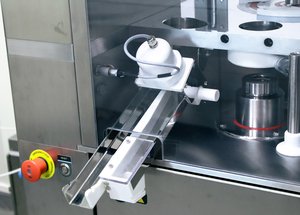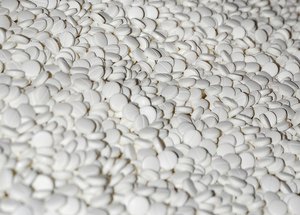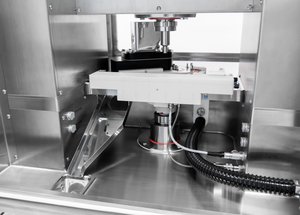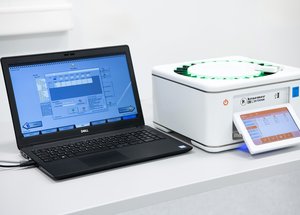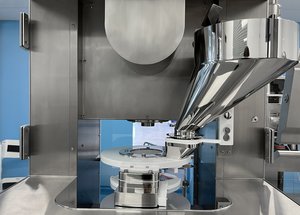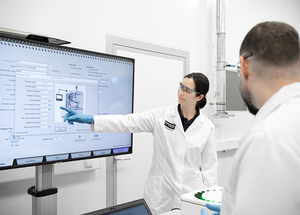Scientific papers
The process of tableting involves transforming mechanical energy into thermal energy. This study assessed how temperature affects the tableting characteristics of formulations with varying compositions. A tableting machine equipped with a thermally controlled die was utilized to replicate industrial-scale heat evolution during tableting. Six formulations containing binders with relatively low glass transition temperatures were analyzed, with variations in polymer type, concentration, and filler content, using paracetamol as the model active pharmaceutical ingredient. The investigation encompassed changes in tabletability, disintegration, and dissolution. Higher temperatures were found to improve tabletability, with the type and concentration of the polymer being crucial factors in determining the extent of these alterations. While the filler composition variations had minimal impact due to their high melting points, these findings were corroborated in disintegration and dissolution tests. Formulations with high binding capacity and low glass transition temperatures exhibited prolonged disintegration and sustained dissolution, with increased polymer concentrations reinforcing these effects. Consequently, if elevated temperatures alter the tableting behavior during formulation development and production, adjusting the binder type or concentration is advisable to maintain consistent tablet quality.
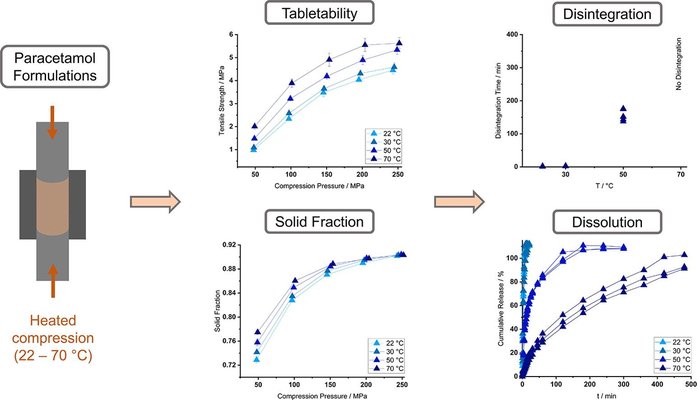
Comments
No comments posted yet.
Add a comment




